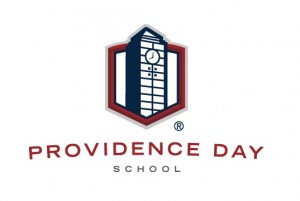By Julie Hill, Middle School Learning Specialist, Providence Day School
In my role as a middle school learning specialist, parents often ask me for tips on how to streamline the homework process in their household. First and foremost, I think it’s important for parents to ponder what homework and grades represent in their family. 
For example, my parents’ expectation was that I treated school as my job therefore giving consistent and honest effort. Communicating about academic expectations provides boundaries and structure within the family unit and serves as a foundation for future conversations.
After the hard thinking takes place, I consider the following aspects of the homework process.
1. Space. Think about where you do your best work. Does subject matter, time of day, or mood influence this answer? Traditionally, sitting at a desk in a room by yourself was seen as best practice. While that still may be the case for some people, my students have found success: stretching on a mat while reviewing vocabulary words, walking with a parent to discuss the topic of a paper, and sitting at the kitchen table doing math problems (amid the chaos) wearing noise-cancelling headphones.
2. Make a plan. I suggest making a plan for the upcoming week on Saturday or Sunday. This plan can be broad and include parent obligations, sports schedules, family outings, etc. Or it can be small and tailored to your child’s academic week. If this is the case, with the help of your child, take information from their syllabus or electronic calendar and break the week down into daily tasks. The daily tasks for each class should be specific. For example, if your child has a test on a Thursday, work backwards to Monday and figure out a goal for each day leading up to the test.

3. Give them choices. Once the weekly plan has been made, give your child choices within the plan. What do they want to work on first? How do they want to study test material — flashcards, verbal recall, acronyms? The ultimate goal is for them to soar without you, so giving them choices and modeling effective problem solving strategies is important.
4. Breaks should be refreshing. Some of my students set an alarm for 15 or 20 minutes of work time and then they take a 5 to 10 minute break after the alarm goes off. How they spend that break matters. I encourage them to stand and stretch, drink water, have a conversation with a family member, throw the ball for their dog, or shoot baskets. 
5. Reflect on the process. In my opinion, one of the most important skills you can give your children is the ability to introspect. In my work with middle school students, I am blown away by their self-awareness related to their learning and study habits. From time to time, help them to reflect on strategies they have used. Did a meeting with a teacher instill test taking confidence? How did summarizing key concepts after each chapter in a novel impact reading comprehension? Learning is a skill developed over time with the assistance of self-awareness.
Most of all have fun, don’t take things too seriously and enjoy the process. Many times we develop our best strategies through trial and error and even failure. The most important thing you can do is teach your child that learning is a creative, fluid, introspective process and that you are along for the ride!

![]()
 Julie Hill, who holds an undergraduate degree from Florida State University in Child Development and a master’s degree in Marriage and Family Therapy from East Carolina University, knew a lot about both subjects before getting married and having kids. She enjoys infusing her skill set of human development and learning sciences into a rich educational curriculum at Providence Day School through her work as the Middle School Learning Specialist.
Julie Hill, who holds an undergraduate degree from Florida State University in Child Development and a master’s degree in Marriage and Family Therapy from East Carolina University, knew a lot about both subjects before getting married and having kids. She enjoys infusing her skill set of human development and learning sciences into a rich educational curriculum at Providence Day School through her work as the Middle School Learning Specialist.
![]()
Providence Day School
5800 Sardis Road
Charlotte, NC 28270
(704) 887-6000
pds.admissions@providenceday.org
website and www.PDinspires.org
facebook
twitter: @ProvidenceDay and @PDSHead


